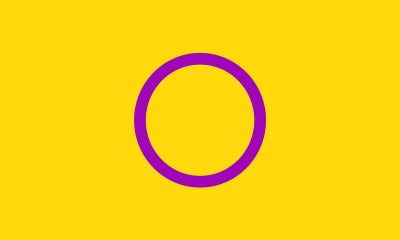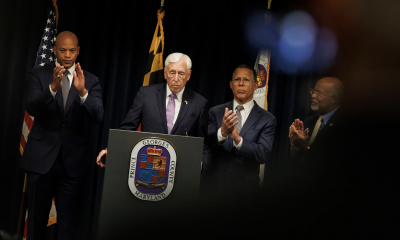Africa
Intersex Kenyans see significant gains since landmark law took effect
MPs approved statute last year
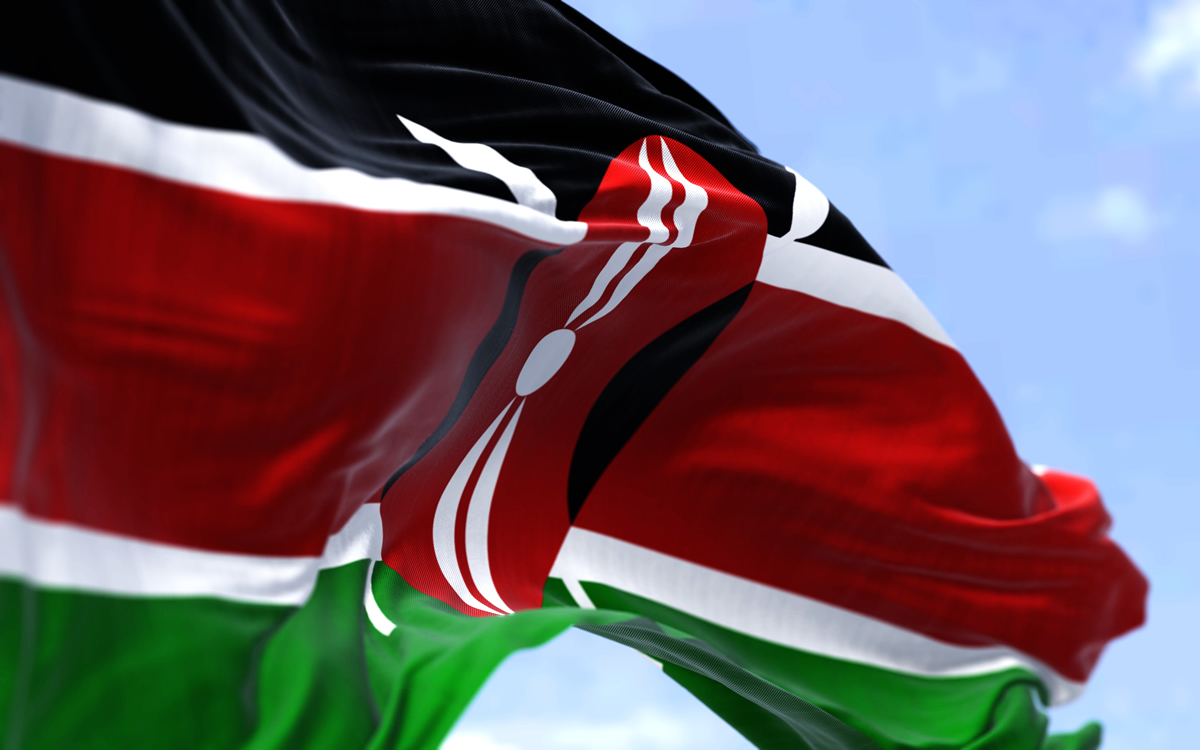
The push for intersex people to enjoy equal rights as Kenya’s third sex has recorded significant gains since a landmark law took effect last July.
Intersex people arrested for breaking the law can now be presented in court as intersex, since prosecutors have adopted the special ‘I’ sex marker for the group in charging documents.
This addresses the problem of authorities identifying intersex people for trial that became public in 2006 when police officers could not tell the sex of a detainee they perceived as a man who had been accused of a violent robbery. They had strip-searched him.
The gains noted in the latest report by the country’s Intersex Persons Implementation Coordination Committee also note the inclusion of intersex concepts in Kenya’s new education curriculum for awareness.
The IPICC falls under the purview of Kenya’s National Commission on Human Rights.
Intersex awareness in schools for recognition and capacity building in the future targets adolescents at the junior secondary level where they are educated on the reproductive system.
Veronica Mwangi, the IPICC’s head of secretariat who spoke to Washington Blade, commended the Office of the Director of Public Prosecutions for introducing the ‘I’ sex marker for intersex people in charging documents.
“We have made gains in the criminal justice but we should not go back to the tendencies where intersex persons only require a lot of attention when it comes to crime. It is a misconception that misses the map,” she said.
Citing a proposed Intersex Persons Bill 2023 currently undergoing public comment before being presented for debate in Parliament, Mwangi believes it envisages more benefits to intersex people.
For instance, the bill proposes access to more comprehensive medical attention for intersex people during surgeries and expensive medical examinations like Karyotype, a DNA and hormonal composition test that costs between $900-$1,000.
The bill would also require medical insurance providers to come up with an affordable, unique package that addresses the needs of intersex people by taking into account the reality of their lived experiences.
“The reality of the matter is you may give birth to an intersex child as a girl but later it turns out to be a boy. Hence the medical package that was given to the girl may not apply to the boy,” Mwangi said.
She added the medical insurance policy should be capable of responding to such changes, since intersex people will always have medical needs that keep shifting.
The bill would also allow intersex people to change their sex marker at any time to reflect their new status after undergoing a comprehensive medical examination and a medical certificate to prove it. The measure would also demand the government to recognize intersex people as a vulnerable group, such as those living with disabilities, women, young people and orphans, in order to more easily access social protection programs.
It would further require employers to consider intersex people for employment and the Kenya Examination Council to support the registration of intersex people’s’ academic documents that indicate their name has changed because of a legal sex change.
The Civil Registration Services, a government agency that documenting all births and deaths, has already been working closely with IPICC to change names on the birth certificates of intersex people to reflect their correct sex for easier access to public services.
Kenya became the first African country to grant equal rights and recognition to intersex people in 2022. It is also the first nation on the continent and the second in the world after Australia to count intersex people in a Census in 2019.
The survey showed 1,524 Kenyans were intersex.
After many years of marginalization and discrimination, the IPICC progress report states that several intersex people for the first time were involved in monitoring Kenya’s August 2022 general election as observers. Other intersex people subjected themselves to the electoral process to be nominated or elected as county assembly representatives, the lowest electoral position, including one in the Kenyan capital of Nairobi.
“This was a bold move and a big achievement because, for the first time in Kenya, intersex persons came out and tested the waters in politics,” Mwangi said.
She cited stigma and fear among intersex people in presenting conflicting documents about their sex to the electoral commission for clearance as the cause of staying away from politics before the enactment of the law that recognizes them. Mwangi urged intersex people to come out and take advance of available opportunities and assistance, since most of them don’t and it becomes hard to reach them.
Since the landmark law came into force in July last year; several psychosocial support groups for intersex persons, their parents and caregivers have been established in the country to offer any necessary assistance that includes counselling. The IPICC has also created a database of intersex people, a text message service and a toll-free number to report cases of discrimination and to advocate on their behalf.
Oct. 26, 2022, also marked the first official event that commemorated Intersex Awareness Day in Kenya.
Egypt
Iran, Egypt object to playing in Seattle World Cup ‘Pride Match’
Game to take place on June 26

Iran and Egypt have objected to playing in a “Pride Match” that will take place in Seattle during the 2026 World Cup.
The Egyptian Football Association on Tuesday said it told FIFA Secretary General Mattias Grafström in a letter that “it categorically rejects holding any activities related to supporting (homosexuality) during the match between the Egyptian national team and Iran, scheduled to be held in Seattle, USA, on June 26, 2026, in the third round of the group stage of the 2026 World Cup.” Football Federation Islamic Republic of Iran President Mehdi Taj told ISNA, a semi-official Iranian news agency that both his country and Egypt “protested this issue.”
The 2026 World Cup will take place in the U.S., Canada, and Mexico. The draw took place at the Kennedy Center on Dec. 5.
Iran is among the handful of countries in which consensual same-sex sexual relations remain punishable by death.
The State Department’s 2023 human rights report notes that while Egyptian law “did not explicitly criminalize consensual same-sex sexual activity, authorities regularly arrested and prosecuted LGBTQI+ persons on charges including ‘debauchery,’ prostitution, and ‘violating family values.’” Egyptian authorities “also reportedly prosecuted LGBTQI+ individuals for ‘misuse of social media.’”
“This resulted in de facto criminalization of same-sex conduct and identity,” notes the report.
The 2024 human rights report the State Department released earlier this year did not include LGBTQ-specific references.
Soccer has ‘unique power to unite people across borders, cultures, and beliefs’
The June 26 match between Iran and Egypt coincides with Seattle Pride. The Washington Post reported the Seattle FIFA World Cup 2026 Local Organizing Committee decided to hold the “Pride Match” before last week’s draw.
“As the Local Organizing Committee, SeattleFWC26’s role is to prepare our city to host the matches and manage the city experience outside of Seattle Stadium,” said SeattleFWC26 Vice President of Communications Hana Tadesse in a statement the committee sent to the Washington Blade on Wednesday. “SeattleFWC26 is moving forward as planned with our community programming outside the stadium during Pride weekend and throughout the tournament, partnering with LGBTQ+ leaders, artists, and business owners to elevate existing Pride celebrations across Washington.”
“Football has a unique power to unite people across borders, cultures, and beliefs,” added Tadeese. “The Pacific Northwest is home to one of the nation’s largest Iranian-American communities, a thriving Egyptian diaspora, and rich communities representing all nations we’re hosting in Seattle. We’re committed to ensuring all residents and visitors experience the warmth, respect, and dignity that defines our region.”
The 2034 World Cup will take place in Saudi Arabia.
Consensual same-sex sexual relations remain punishable by death in the country. The 2022 World Cup took place in neighboring Qatar, despite concerns over the country’s anti-LGBTQ rights record.
Eswatini
PEPFAR delivers first doses of groundbreaking HIV prevention drug to two African countries
Lenacapavir now available in Eswatini and Zambia.
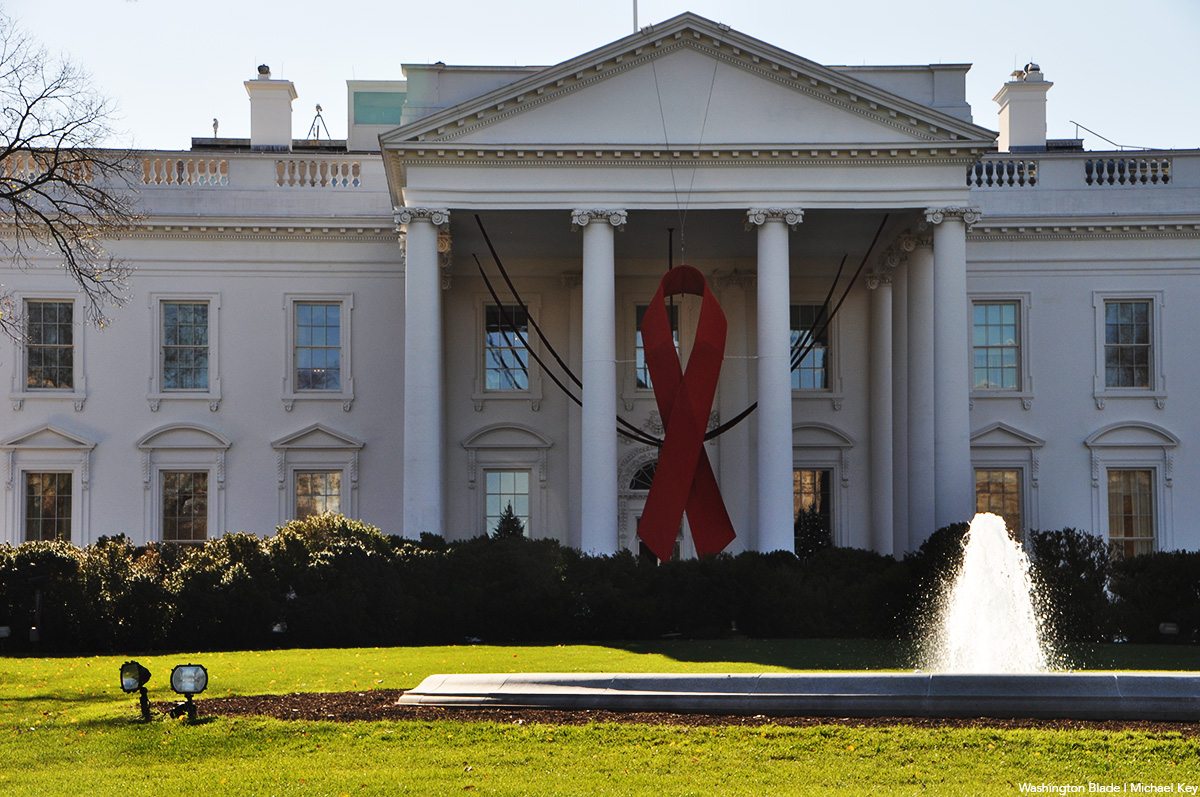
The State Department on Tuesday announced PEPFAR has delivered the first doses of a groundbreaking HIV prevention drug to two African countries.
The lenacapavir doses arrived in Eswatini and Zambia.
The State Department in September unveiled an initiative with Gilead Sciences to bring lenacapavir “to market in high-burden HIV countries.”
Lenacapavir users inject the drug twice a year.
The State Department in its September announcement noted everyone who participated in Gilead’s clinical trials remained HIV negative. It also said lenacapavir “has the potential to be particularly helpful for pregnant and breastfeeding mothers, as it safely protects them during and after pregnancy to prevent mother-to-child transmission.”
“In our new America First Global Health Strategy, the Department of State is establishing a first-of-its-kind innovation fund to support American-led research, market-shaping, and other dynamic advancements in global health,” said PEPFAR on Tuesday in a press release.
“The arrivals of the first doses of lenacapavir in Eswatini and Zambia mark an important milestone in HIV prevention and reflect our commitment to supporting communities with the greatest need,” added Gilead CEO Daniel O’Day. “For the first time, a new HIV medicine is reaching communities in sub-Saharan Africa in the same year as its U.S. approval.”
The September announcement came against the backdrop of widespread criticism over the Trump-Vance administration’s reported plans to not fully fund PEPFAR and to cut domestic HIV/AIDS funding. The Washington Blade has previously reported PEPFAR-funded programs in Kenya and other African countries have been forced to curtail services or even close because of U.S. funding cuts.
Botswana
The first courageous annual Palapye Pride in Botswana
Celebration was a beginning rooted in courage, community, and love.
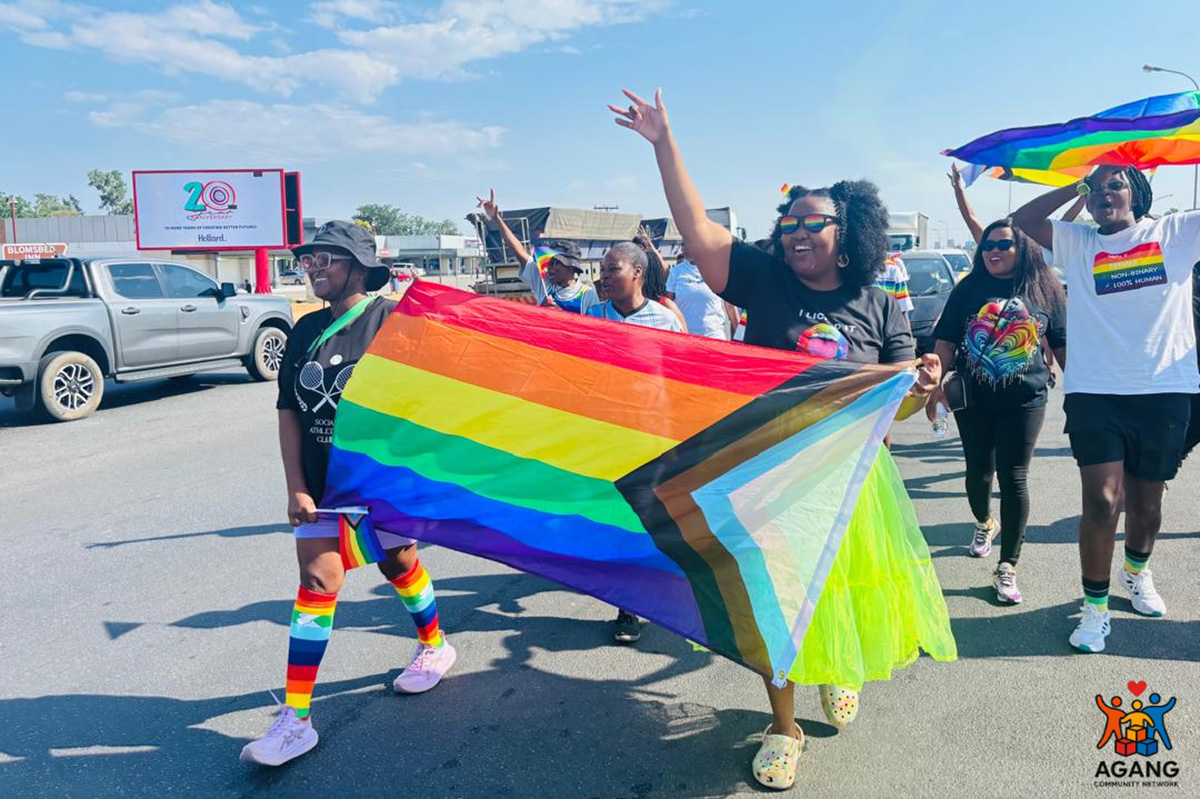
“When the sun rose on 1 Nov., 2025, Pride morning in Palapye, the open space where the march was scheduled to begin was empty. I stood there trying to look calm, but inside, my chest felt tight. I was worried that no one would come. It was the first-ever Pride in Palapye, a semi-urban village where cultural norms, religious beliefs, and tradition are deeply woven into everyday life.
I kept asking myself if we were being naive. Maybe people weren’t ready. Perhaps fear was going to win. For the first 30 minutes, it was me, a couple of religious leaders and a handful of parents. That was it. The silence was loud, and every second felt like it stretched into hours. I expected to see the queer community showing up in numbers, draped in color and excitement. Instead, only the wind was moving.
But slowly, gently, just like courage often arrives, people started to show up with a rainbow flag appearing from behind a tree and a hesitant wave from someone standing at a distance.
That’s when I understood that people weren’t late, just that they were afraid. And their fear made sense. Showing up openly in a small community like Palapye is a radical act. It disrupts silence. It challenges norms. It forces visibility. Visibility is powerful, but it is never easy. We marched with courage, pulling from the deepest parts of ourselves. We marched with laughter that cracked through the tension. We marched not because it was easy, but because it was necessary,” narrates activist Seipone Boitshwarelo from AGANG Community Network, which focuses on families and friends of LGBTIQ+ people in Botswana. She is also a BW PRIDE Awards nominee for the Healing and Justice Award, a category which acknowledges contributions to wellness, mental health, and healing for the LGBTIQ+ community across Botswana.
Queer Pride is Botswana Pride!
Pride is both a celebration and a political statement. It came about as a response to systemic oppression, particularly the criminalization and marginalization of LGBTIQ+ people globally, including in Botswana at some point. It is part of the recognition, equality, and assertion of human rights. It also reminds us that liberation and equality are not automatically universal, and continued activism is necessary. A reminder of the famous saying by Fannie Lou Hamer, “Nobody is free until everybody’s free.”
The 2023 Constitutional Review process made one thing evident, which is that Botswana still struggles to acknowledge the existence of LGBTIQ+ people as full citizens. Instead of creating a democratic space for every voice, the process sidelined and erased an entire community. In Bradley Fortuin’s analysis of the Constitutional review and its final report, he highlighted how this erasure directly contradicts past court decisions that explicitly affirmed the right of LGBTIQ+ people to participate fully and openly in civic life. When the state chooses to ignore court orders and ignore communities, it becomes clear that visibility must be reclaimed through alternative means. This is why AGANG Community Network embarked on Palapye Pride. It is a radical insistence on belonging, rooted in community and strengthened through intersectionality with families, friends, and allies who refuse to let our stories be erased.
Motho ke motho ka batho!
One of the most strategic decisions made by the AGANG Community Network was to engage parents, religious leaders, and local community members, recognizing their value in inclusion and support. Thus, their presence in the march was not symbolic, but it was intentional.
Funding for human rights and LGBTIQ+ advocacy has been negatively impacted since January 2025, and current funding is highly competitive, uneven and scarce, especially for grassroots organizations in Botswana. The Palapye Pride event was not funded, but community members still showed up and donated water, a sound system, and someone even printed materials. This event happened because individuals believed in its value and essence. It was a reminder that activism is not always measured in budgets but in willingness and that “motho ke motho ka batho!” (“A person is a person because of other people!”).
Freedom of association for all
In March 2016, in the the Attorney General of Botswana v. Rammoge and 19 Others case, also known as the LEGABIBO registration case, the Botswana Court of Appeal stated that “members of the gay, lesbian, and transgender community, although no doubt a small minority, and unacceptable to some on religious or other grounds, form part of the rich diversity of any nation and are fully entitled in Botswana, as in any other progressive state, to the constitutional protection of their dignity.” Freedom of association, assembly, and expression is a foundation for civic and democratic participation, as it allows all citizens to organize around shared interests, raise their collective voice, and influence societal and cultural change, as well as legislative reform.
The Botswana courts, shortly after in 2021, declared that criminalizing same-sex sexual relations is unconstitutional because they violated rights to privacy, liberty, dignity, equality, and nondiscrimination. Despite these legal wins, social stigma, cultural, and religious opposition continue to affect the daily lived experience of LGBTIQ+ people in Botswana.
The continuation of a declaration
AGANG Community Network is committed to continuing this work and creating safe and supportive spaces for LGBTIQ+ people, their families, friend, and allies. Pride is not just a day of fun. It is a movement, a declaration of queer existence and recognition of allyship. It is healing and reconciliation while amplifying queer joy.
Seipone Boitshwarelo is a feminist, activist, social justice healer, and founder of AGANG Community Network. Bradley Fortuin is a social justice activist and a consultant at the Southern Africa Litigation Center.
-

 Movies5 days ago
Movies5 days ago‘Hedda’ brings queer visibility to Golden Globes
-

 Opinions5 days ago
Opinions5 days agoJust say no to the felon in the White House
-

 Minnesota5 days ago
Minnesota5 days agoReports say woman killed by ICE was part of LGBTQ community
-

 Maryland5 days ago
Maryland5 days agoSteny Hoyer, the longest-serving House Democrat, to retire from Congress



